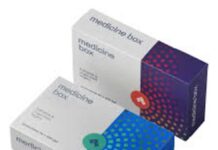The healthcare industry continues to evolve rapidly, presenting challenges and opportunities for professionals seeking employment. While the demand for skilled healthcare workers remains high, the terrain of job searching has shifted, with technology playing a pivotal role in matching candidates to their ideal positions. Aspiring and current healthcare professionals must adapt to the nuances of the modern job market to enhance their employability. In this article, we explore strategies to successfully navigate the complexities of finding healthcare roles.
Understanding the Current Landscape of Healthcare Employment
The healthcare sector has seen significant growth, driven by an aging population and technological advances. This expansion translates to a persistent demand for healthcare professionals across various specialties. However, job seekers must appreciate that healthcare institutions often seek candidates who are not only clinically adept but are also technologically savvy and possess soft skills such as empathy and communication.
Competition remains fierce, particularly for coveted positions at prestigious institutions. Job seekers must differentiate themselves by obtaining relevant certifications, continuing education, and participating in meaningful research or quality improvement projects. Understanding the subtleties of the market will give candidates a competitive edge.
In response to global health challenges, more temporary and contract positions have become available, offering professionals the flexibility to work across different environments. Nevertheless, for those seeking permanent healthcare jobs, it’s advised to consider long-term career trajectories and the stability such roles provide.
The integration of technology in healthcare extends to its hiring practices. The emergence of advanced job-matching platforms has changed how healthcare providers scout for talent. Professionals looking to navigate this digital landscape must focus on creating impressive digital footprints to attract potential employers.
Maximizing Your Visibility on Healthcare Job Platforms
With an array of digital platforms dedicated to healthcare recruitment, professionals must strategically promote their profiles. Ensuring that your online resume is up-to-date, comprehensive, and highlights your unique skill set is crucial. Use keywords related to your desired position and specialty to increase the likelihood of appearing in search results.
Beyond passive job-seeking, active engagement on these platforms is vital. Many recruiters use sophisticated algorithms to identify candidates who engage regularly with content and updates. By demonstrating your industry engagement through comments and shares, you can significantly increase your visibility to hiring managers.
Social media also serves as an invaluable tool for professionals. Platforms like LinkedIn can be especially beneficial, allowing individuals to connect with industry leaders, join professional groups, and share expertise. Positioning yourself as a thought leader by contributing relevant content can help accentuate your profile among peers and recruiters.
Finally, reviews and references play a substantial role. Endorsements from colleagues, supervisors, and patients can bolster your credibility. Make it a practice to ask for recommendations regularly to enhance the social proof of your expertise and professional demeanor on these platforms.
Leveraging Networking and Professional Associations in Healthcare
Networking continues to be a foundational element of career advancement in healthcare. Forming professional connections can lead to mentorship opportunities, insider knowledge about open positions, and personal endorsements. Attending conferences, workshops, and seminars are excellent ways to expand your network.
Professional associations are another vital avenue for networking. These organizations often host events and provide resources for continuing education On the Market. Membership can signal commitment to your profession and offer additional networking venues, giving you access to a community with shared interests and aspirations.
Mentorships gained through networking can offer guidance, support, and direct lines to hiring managers. Cultivating relationships with mentors can give you insights into navigating complex career pathways and can be a source of recommendations.
Utilizing modern networking tools, such as online forums and virtual meetups, can also be advantageous. These venues may present unique opportunities to connect with healthcare professionals from around the globe, opening doors to international career possibilities and diverse perspectives on healthcare delivery.
By staying informed about emerging trends and opportunities, healthcare professionals can position themselves favorably within a competitive job market.






































